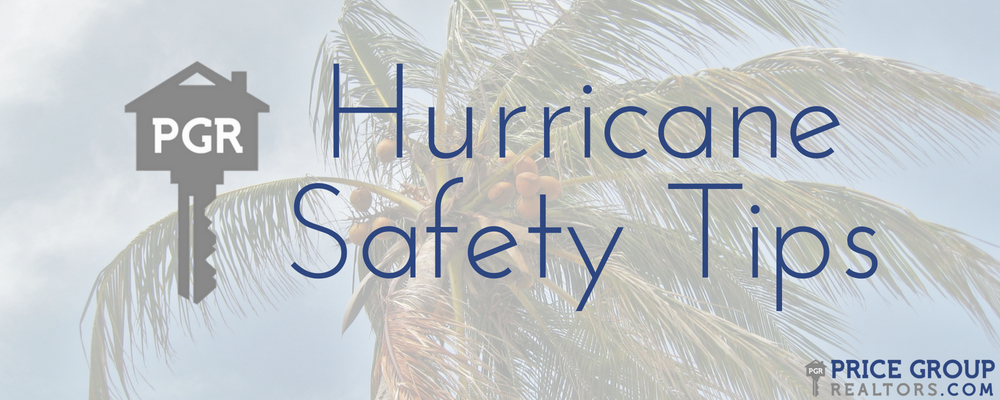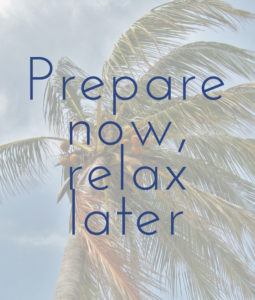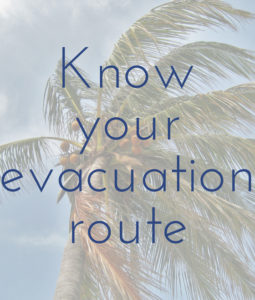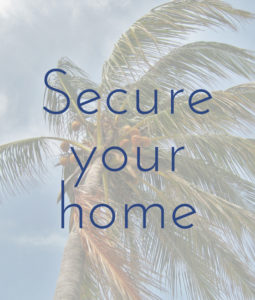
Hurricane Safety Tips
Hurricane Safety Tips
After Hurricane Irma hit Tampa Bay and left 6 million people without power including many in St Pete for at least a week in 2017, most of us are on high alert this hurricane season. Our proximity to the waterfront makes us very vulnerable to hurricanes and tropical storms.
These hurricane safety tips will help you stay prepared and keep your mind at ease this year, rain or shine.
Prepare now, relax later.
It seems obvious, but we cannot stress this enough: Don’t wait until a storm is imminent to start preparing. We’ve all seen photos of empty shelves at grocery stores right before a large storm hits, and you don’t want to be that family driving all over town to find the supplies you need to secure your house. Or, even worse, be stuck without food and water for days on end.
Start now and you can save yourself a lot of headaches.
Stock up on supplies. 
Make sure your safety kit is stocked and ready to go each year (you can add this to your Spring  Cleaning list, which we’ve already prepared for you here!). Along with the following items, you’ll also want to ensure your bathtubs are filled so you can use that water for bathing and flushing the toilet in case the power is out for multiple days.
Cleaning list, which we’ve already prepared for you here!). Along with the following items, you’ll also want to ensure your bathtubs are filled so you can use that water for bathing and flushing the toilet in case the power is out for multiple days.
Things you want to include:
- First aid kit (you can buy these at any drug store)
- Any necessary medication for you and your family (and pets!)
- Flashlights
- Battery powered radio
- Extra batteries (for any devices that are battery powered)
- Portable cell phone chargers
- Non-perishable foods and water (the State of Florida website suggests 3 days worth)
- Entertainment such as books, crosswords, board games, etc.
- Cooler, ice and/or ice packs (you can make ice days or weeks in advance so you’re not waiting in line at the store)
- Manual can opener
- Personal hygiene items (deodorant, baby wipes, feminine hygiene items, etc)
Know your evacuation route. 
In addition to having all your supplies stocked up in advance, you should always plan for a possible evacuation, especially if your home is located in a flood zone. If local officials call for an evacuation of your area, you don’t want to be scrambling to find the most efficient way to get out or not give yourself enough time to do so and be stuck in traffic for hours unnecessarily. Plan ahead, find your route and have a back-up plan just in case. Keep your gas tank full, have an extra container for emergencies, pack your hurricane kit in your trunk with any documents you may need in a water proof container, and confirm a place to stay with family or friends if you aren’t staying in a hotel.
Make arrangements with hotels as soon as you can to ensure they are not already booked. If you have pets, call ahead to hotels and shelters and see if they allow pets. Click here for a map of local evacuation routes, lists of public shelters, and other resources from the City of St Pete.
Secure your home. 
Before you evacuate, or if an evacuation isn’t mandatory, you’ll want to make sure your home is safe and secure well before a storm approaches. Make sure windows are covered with storm shutters or secure them with wood covering at least 5/8″ thick to prevent projectiles from breaking the windows. Note: make sure to measure your windows so you can cover it in entirely. Stores like Lowe’s or Home Depot will cut wood for you. Take a note of any tree limbs that are hanging over or around your home. Trim any limbs that may cause damage to your home or surrounding homes or may cause your driveway to be obstructed.
Take any lawn/patio furniture, potted plants, decorations, children’s toys, etc. and bring them inside to avoid the wind sending them into surrounding buildings/vehicles. Secure driveways and garages with sandbags if necessary.
For more information on hurricane safety, please visit the links below.
State of Florida Essential Guide to Hurricane Preparedness
National Weather Service Hurricane Safety Tips and Resources

